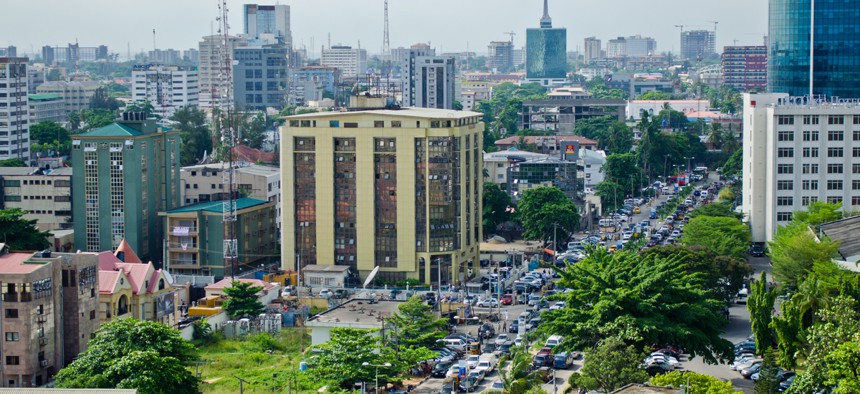Google Is Boosting Internet Access in Nigeria’s Biggest Cities With Free Public Wi-Fi

UnsulliedBokeh/Shutterstock.com
While these projects are couched as moves to help more Africans come online, they are also plays to increase revenue.
Google Station, the web giant’s public Wi-Fi service, has gone live in Nigeria.
As it has done in four other countries—India, Indonesia, Mexico and Thailand—where the service has been launched, Google will partner with local service providers for infrastructure and locations while it offers a cloud-based platform and devices to provide and manage hot-spots. Google Station locations will include high footfall areas such as malls, airports and schools. Already live in four locations in Lagos, the service will be expanded to 200 locations across five additional Nigerian cities—Port Harcourt, Abuja, Kaduna, Enugu, Ibadan—by the end of 2019.
The Wi-Fi service is not the Google’s first internet access-focused initiative in Africa. In Ghana and Uganda, it has launched Project Link through which it builds fiber-optic networks to help local internet service providers and mobile operators provide faster broadband. The company is also in talks with telecom operators in Kenya to launch Project Loon, an ambitious plan to beam internet to users using solar-powered high-altitude balloons. Facebook also has a history of internet access projects in Africa, including Express Wi-Fi and Free Basics.
While these projects are couched as moves to help more Africans come online, they are also plays to increase revenue. Increased internet access means more Africans will spend time online, likely using tech companies’ products and thus driving revenues through advertising and paid services.
In Nigeria, as Google Station will focus on major cities in locations mainly frequented by the middle class, it’s unlikely that users will be connected to the internet for the first time through the service. But regardless, as users access the free service, they will also be boosting Google’s revenue. The company will monetize Google Station through local advertisers and share revenues with technical partners, according to Anjali Joshi, vice president of Google’s Next Billion User program.
The service will be an upgrade for many users though. Google Station’s speed of 30 megabits per second (Mbps) far exceeds the 1.86 Mbps average internet speed in Nigeria, according to a global broadband speed league by U.K. analytics firm Cable. Google is well aware of Nigeria’s internet speed limitations: last year, during his first visit to Nigeria, Google CEO Sundar Pichai launched YouTube Go, an “offline first” version of the popular video sharing platform for users with slow internet connections.






